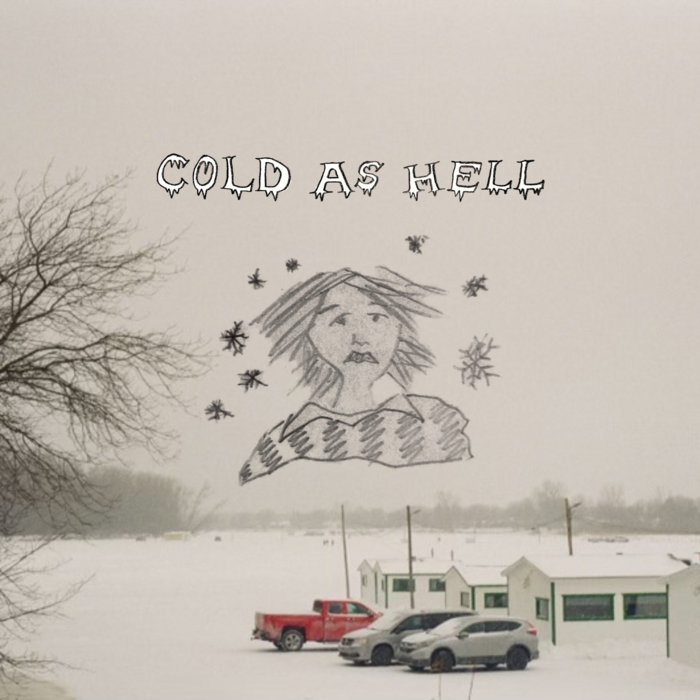Cold As Hell Vs. Hail: Uncovering The Phrase's True Meaning
Ever wondered about the true meaning behind those frosty sayings we toss around, particularly in a place like Michigan where winter seems to stretch on forever? The age-old debate of "cold as hail" versus "cold as hell" is more than just a linguistic puzzle; it's a window into our history, culture, and the very essence of how we experience the world.
The phrase "cold as hell" presents an interesting paradox. We often associate hell with fire and intense heat, so how can it also be used to describe extreme cold? The answer lies in understanding the phrase's evolution and the cultural context in which it's used. It's a common expression, especially in regions known for their harsh winters, such as Michigan, where the biting cold can feel truly infernal. But is it grammatically or logically correct?
Before diving deeper, let's consider the core of the query: Is "cold as hell" correct, or should it be "cold as hail?" To fully understand these phrases, we can start by looking at the individual components:
- Cold as Hail: Hail, of course, is frozen precipitation. It's literally ice, so the association with cold is direct and logical.
- Cold as Hell: While "hell" typically evokes images of fire and heat, the use of "hell" here is as an intensifier, emphasizing the extreme nature of the cold. This phrase's origins and its evolution through language are key.
Here's a look at the difference between the two phrases.
| Phrase | Meaning | Origin | Context | Examples |
|---|---|---|---|---|
| Cold as Hail | Describes something as extremely cold. | Directly related to the nature of hail (frozen precipitation). | Often used to describe weather, environments, or anything that is very cold. | "The wind chill today makes it feel cold as hail." |
| Cold as Hell | Emphasizes extreme coldness. | Evolutionary use of "hell" as an intensifier. | Used to intensify the degree of coldness, similar to other phrases using "hell." | "That abandoned house is cold as hell in the winter." |
The question of whether "cold as hell" is correct is a matter of how language evolves. While "cold as hail" is literally accurate, "cold as hell" effectively conveys the feeling of extreme coldness. Some people would likely use the phrase "cold as hell" in the same breath as "It's freezing!"
The cultural understanding of hell varies across time and cultures. In Dante's "Inferno," hell is often depicted as having specific levels, some of which include freezing temperatures, while other levels are associated with fire. This shows that "hell" can encompass the extremes of both heat and cold.
The use of "hell" as an intensifier is not unique to cold. Consider other phrases such as "hot as hell," "hard as hell," "sad as hell," or "lucky as hell." In each instance, "hell" serves to amplify the adjective, communicating the extreme degree of the described quality. This usage demonstrates how language develops and adopts words to highlight the most powerful emotional or physical experiences.
In everyday speech, idioms and expressions can often be found, and some of them are quite difficult to learn. The English language has many idioms that could cause confusion. "Hard as hail" could theoretically make sense. After all, hailstones are solid chunks of ice and can be quite hard. But in most cases "as hell" is just a common intensifier, like saying something is "dumb as hell" instead of "dumb as hail," even though hell is not a place of stupid. Similarly, someone might be "lucky as hell" even though it's arguably not lucky to end up there. So, it's a figure of speech, not a literal comparison.
In formal contexts, one might find it is better to avoid the phrase "hard as hell," and the same consideration would be made for cold as hell. Phrases like "cold as a banker's heart," "cold as a dead snake in a deep freeze," or "cold as an outhouse seat in January" are used in various contexts and regions.
Hail, in this scenario, is a meteorological phenomenon, and it can be used to describe the severity of a storm. Updrafts carry raindrops into extremely cold areas in the atmosphere, where they freeze and become ice pellets. This is why "cold as hail" is the correct phrase when speaking about how cold it is.
In truth, "cold as hell" might seem an oxymoron, especially if people would look into its originality and evolution. But the phrase is a common expression to show how cold something is. Similarly, many folks are complaining about how something is "hard as hell," but some people are surprised that it is "hard as hail." Idioms and expressions are the most difficult part of learning the English language.
The debate, however, is more than just about which phrase is "correct." It taps into our understanding of metaphor, the power of language to evoke emotion, and the ways we use words to relate to our environment. "Cold as hail" gives us a direct, physical comparison. "Cold as hell," though, conjures a more intense, almost visceral sensation a sense of extreme cold that goes beyond mere temperature and into the realm of the unbearable. Its this capacity to intensify experience that allows a phrase like "cold as hell" to endure in our lexicon, even when it may not be the technically "correct" choice.


